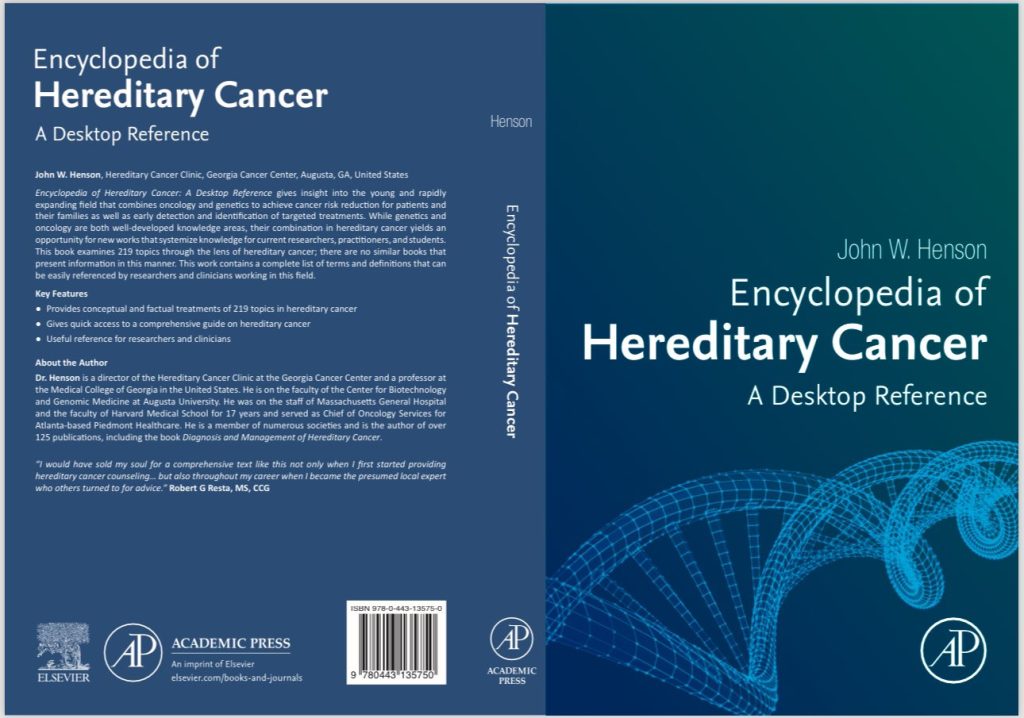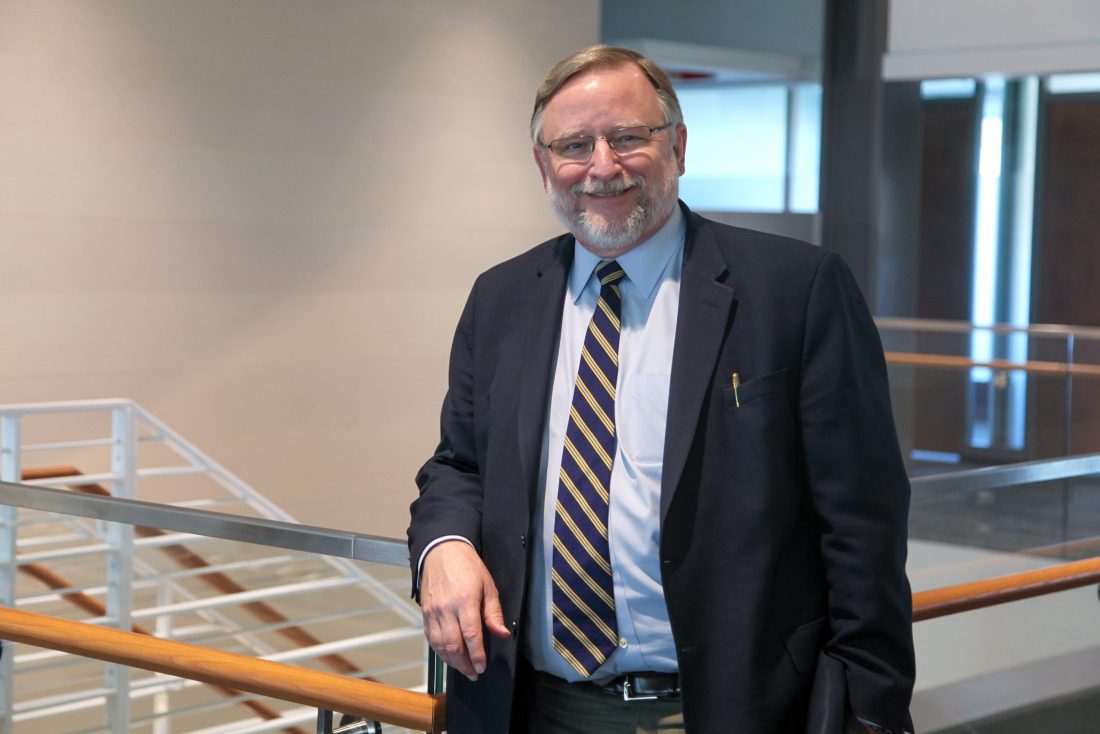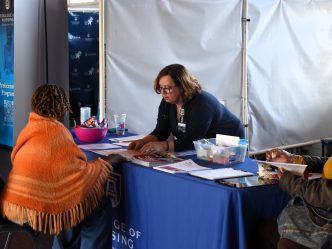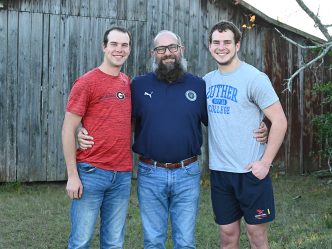John W. Henson, MD, director of the Hereditary Cancer Clinic at the Georgia Cancer Center at Augusta University and the director of Clinical Genomics at Wellstar MCG Health, has published his second book, Encyclopedia of Hereditary Cancer.
“It’s quite a thrill the day the box arrives with printed copies of your book,” Henson said.
Finding time early in the mornings and late into the night, Henson worked over the course of a year and a half to complete his second book. It spans 250 topics and includes an in-depth index section of 30 pages, another feature that he felt was lacking from his first book.

Since publication, Henson has gotten good feedback from colleagues at different institutions, including a senior geneticist at Vanderbilt who complimented Henson’s mechanistic approach.
“That was a very rewarding comment from someone who is a major figure in the world of genetics,” he said.
In his first book, Diagnosis and Management of Hereditary Cancer, Henson took an organized syndromic approach to hereditary cancers. The book goes into great detail on information related to organ systems, tumors and genes, however; it features less discussion of the mechanisms by which genes cause the syndrome.
“As I looked at the first book, I realized it was strong on syndromes but weak on mechanism,” Henson said. “It was missing the ‘why,’ the part that matters the most to me.”
When a gene with a disease-causing mutation tells a cell how to make a protein, there will be one of three effects. The altered protein will maintain its normal function but be overactive, known as a hypermorphic alteration; it will destroy or cripple the function of the protein, thus inactivating the protein function; or it will give the protein an entirely new function, known as a neomorphic alteration.
“These effects on protein function are utterly fascinating and pervade everything in the second book,” he said.
While Henson is proud of his work and the way it is organized, he does recommend that a person have technical knowledge and interest in hereditary cancers or gene mutations before picking up a copy of his book.
Both books are available for purchase on Elsevier’s site. Henson’s work in the Hereditary Cancer Clinic and several subspecialty programs for genetic disorders can be found on Wellstar MCG Health’s website.
 Augusta University
Augusta University




